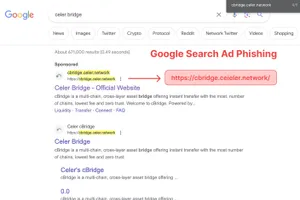John DeSalvo, a former New Jersey corrections officer, was charged by the SEC over a pump-and-dump scheme associated with his "Blazar" token, a project he targeted at fellow law enforcement. With promises that the Blazar token would "guaranteed minimum 100X your money", DeSalvo convinced around 222 investors to pour in at least $623,888. He also made other false statements, including that the token was registered with the SEC, and that he had devised a way for people to take payroll deductions that would automatically be used to purchase the token.Rather than "100x-ing", the token immediately plummeted when DeSalvo sold his ~41 billion Blazar tokens. DeSalvo is accused of using his profits from the scheme to speculate on other crypto tokens, pay for personal expenses, and reimburse one investor who threatened legal action.
DeSalvo is also being charged over a separate investment scheme he operated, where he solicited investments on Facebook, promising to use his claimed trading expertise to earn massive returns. The SEC alleges he lost most of the money in bad investments, and stole the rest for himself, blaming the losses on market movements.







